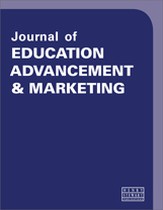Applying the Kano method to higher education choice
Abstract
The paper explores whether the Kano method (used in product development and quality circles in business and industry) could be applied to an institution of higher learning to classify various attributes relating to the institution as perceived by students. The Kano classification of institutional attributes could provide additional insight into the nature of attributes believed to be important to students; some may provide delight, some may be expected and others may be basic requirements. This has implications for student satisfaction, and affects recruitment and retention of students. The present case study clearly demonstrates that the Kano Method can be applied to higher education settings. Several attributes are identified in this study (at a mid-sized, Midwestern university) as being 'attractive' or 'one-dimensional' or 'must-be' in Kano terms. This exploratory study provides a roadmap for conducting similar Kano studies at other institutions of higher learning. The paper also suggests how different types of Kano attributes may be used by linking them to a decision-making framework.
The full article is available to subscribers to the journal.
Author's Biography
K. N. Rajendran is an associate professor in marketing in the College of Business Administration at the University of Northern Iowa. He has taught a variety of undergraduate and graduate courses on campus and abroad (Hong Kong and Shanghai). His research has been published in several journals including the Journal of Marketing, International Marketing Review and Marketing Management Journal. He has presented several papers at marketing science conferences in the USA, Australia and Europe. He is a member of the American Marketing Association, the Marketing Science chapter of INFORMS and the Academy of Marketing Science. He was on the Editorial Board of International Marketing Review for 22 years and has an extensive service record at University of Northern Iowa (UNI), particularly in the area of learning assurance. Prior to joining the doctoral programme at the University of Iowa, he had nine years of experience in India related to banking, consulting and training, including serving as faculty in World Bank sponsored programmes.
Lynne Pierce has worked to help create a community with Ithaca College students, alumni, parents, faculty, staff and friends for more than 25 years. She began in residential life and moved to the development office in 2000. There, she spent the next eight years in the Ithaca College Annual Fund where, among other duties, she was responsible for creating and advising the Senior Class Gift Campaign Committee. In 2008, a position was created in the Office of Alumni Relations to develop and manage the student and young alumni programmes at the college. Since that time, Lynne has worked to cultivate a culture of philanthropy among the students and young alumni of Ithaca College. As adviser to Ithaca Colleges Students Today Alumni Tomorrow, she supports them in their mission to promote further student involvement in the college community by building traditions, seeking links between students and alumni, and encouraging pride and spirit within the Ithaca College family. Lynne earned a bachelors degree in criminal justice and psychology from Kings College and a masters degree in education from the State University of New York at Binghamton.
